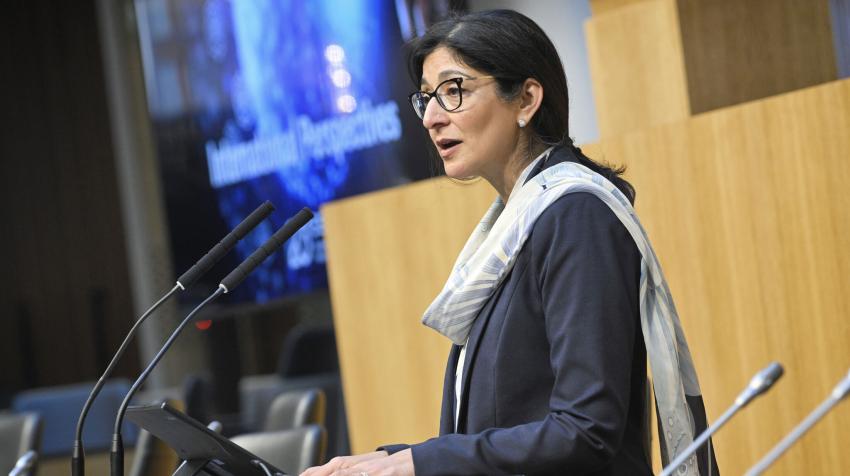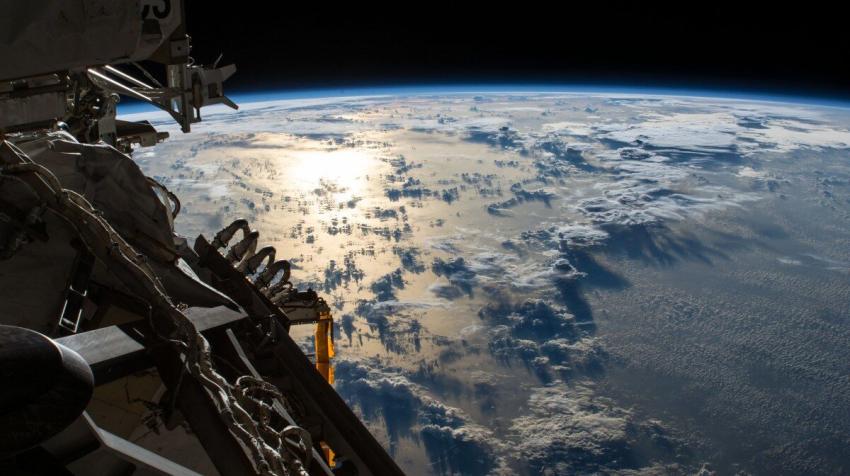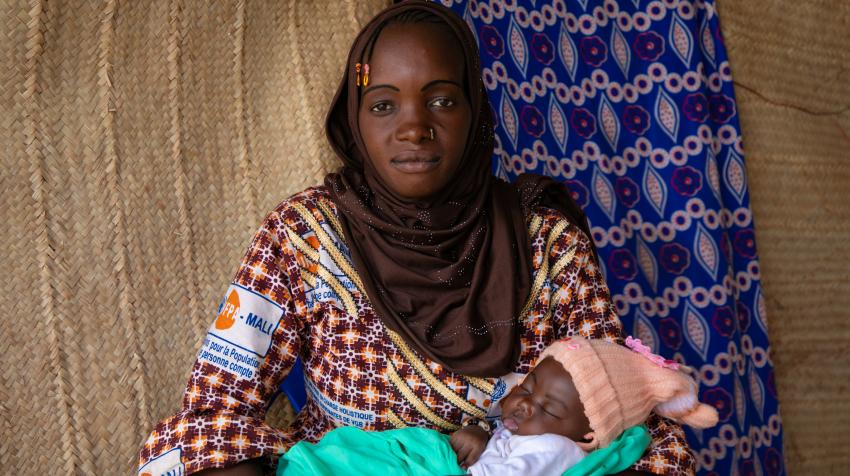9 October 2023
Once the sole domain of governments, the space sector has now entered a new age, with the private sector playing a pivotal role in its expansion, and even schools and universities launching satellites. The United Nations, through its Office for Outer Space Affairs (UNOOSA), is enhancing its long-standing cooperation with Member States and driving partnerships with the broader space sector to support sustainable development.
Entrepreneurs are innovating to find ways of extending the useful life of satellites, manufacturing space assets while in orbit, carrying civilians into space, and establishing private space stations and even settlements on the Moon and beyond. Space applications and services generate close to 80 per cent of the global space economy,1 and investment continues to flow into innovation and start-ups, creating more opportunities for revenue generation. Member States continue to play a formative role and are now being called upon to do more to accompany this evolution, engage with industry and take more informed decisions to address new challenges.
Space as a driver of sustainable development
In 2023, one would be hard-pressed to find a country that does not use space technology, data or services to some extent. In today’s world, space applications underpin multiple sectors and society in a way that most of us could never have imagined. From weather forecasting to monitoring climate variables that can only be measured from space, from identifying malaria hotspots to preventing the spread of other vector-borne diseases, from taking unconnected communities from zero to 4G connectivity within months as opposed to years, space has the power to transform lives for the better, bringing coverage and reach of such benefits in a way that no land-based technology can. As such, this largely unseen technology is a nascent driver of socioeconomic growth for developed and emerging economies alike. In advanced economies, satellites underpin more than 10 per cent of gross domestic product. Some estimates suggest that by 2050, global revenues from the space economy could reach 3 trillion dollars.

The work of UNOOSA supports Member States as they seek to embrace the benefits of space applications and develop a space economy. An important application area that is becoming increasingly relevant in the face of unprecedented climate emergencies is disaster management. Space technologies enable early warning systems for floods, tsunamis and forest fires, contributing to both prevention and rapid response. Satellites also enable vital communications links when land-based systems are overloaded or destroyed. Against this backdrop, UNOOSA plays a critical role in helping Member States build resilience through capacity-building and the training of local experts who are then equipped to make the best use of space data and applications and activate the International Charter on Space and Major Disasters when confronted with a national emergency.
The work of UNOOSA supports Member States as they seek to embrace the benefits of space applications and develop a space economy.
Another area that benefits from space technology is food security. Satellites enable farmers to apply precision farming techniques that help ensure agricultural output is more efficient and less wasteful. Sensors connected to communications satellites help monitor the location, weight and well-being of livestock. Fish farmers rely on satellites to monitor oxygen levels in water to promote the growth of their stocks and maintain healthy sea cages. These diverse applications highlight the versatility of space technology and its potential to reduce operational costs and support the sustainable supply of food.
The United Nations: underpinning space innovation and governance
The United Nations General Assembly established the Committee on the Peaceful Uses of Outer Space (COPUOS) in 1958. This consensus-based Committee has consistently delivered the treaties, principles, guidelines and resolutions upon which all activities and innovations in outer space are based today. Serving as the Committee’s secretariat, UNOOSA supports the implementation of this framework among Member States. Going forward, in the interest of sustainable development—on Earth and in space—the United Nations system must adapt to keep pace with technological advancement, thus preserving its relevance and increasing its impact.

The case for partnerships
Global partnerships, including with the private sector, are essential for building a robust and future-proof space sector. This is all the more important given that the United Nations does not have its own space capabilities—it has never launched or built a satellite. However, the Organization facilitates the essential triangular cooperation between spacefaring Member States, industry and those countries most in need.
One example of partnership between Member States, international organizations and industry is the UNOOSA Access to Space for All initiative, a flagship endeavour that serves as a gateway for developing countries to take their first steps in space and build national and regional expertise. Through this initiative, UNOOSA provides unique opportunities to access space skills, knowledge and infrastructure. Examples range from partnerships with Egypt, Kenya and Uganda to deploy a climate monitoring camera from the Bartolomeo platform (built by Airbus) on the International Space Station (ISS), to an agreement with the Japanese Aerospace Exploration Agency (JAXA) that led to Guatemala, Kenya, Mauritius and Moldova all deploying their very first satellites from ISS. These initiatives have served as catalysts for the creation of national space agencies; the development of national space legislation or strategies; and the stimulation of homegrown capacity and skills resulting in space ecosystems that allow these countries to partake in the global space economy.
Conclusion
As the space industry continues to evolve at breakneck speed, I am delighted to be taking the helm of a United Nations Office that is called upon to ensure that space can play its rightful role in transforming the lives of ordinary people here on Earth and in preparing for future space exploration by the next generation of spacefarers. In an age of space entrepreneurship, UNOOSA is uniquely positioned to serve as a bridge between the needs of Member States and the solutions that lie in state-of-the-art space technologies developed by the brightest minds on the planet. True to its mission, UNOOSA is committed to leveraging the benefits of space for all humanity in an increasingly vulnerable world.
Notes
1Space Foundation, Space Report 2023 Q2 (2023). Available at https://www.thespacereport.org/.
The UN Chronicle is not an official record. It is privileged to host senior United Nations officials as well as distinguished contributors from outside the United Nations system whose views are not necessarily those of the United Nations. Similarly, the boundaries and names shown, and the designations used, in maps or articles do not necessarily imply endorsement or acceptance by the United Nations.




